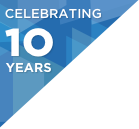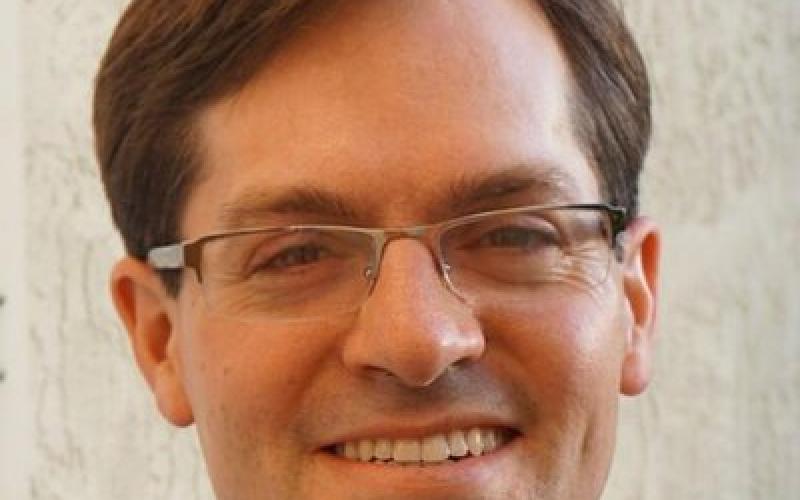Conference: Nov 13-15, 2017
Workshops: Nov 16-17, 2017
Track: Culture as a Differentiator
Location:
- Pacific DEKJ
Day of week:
- Wednesday
Culture influences every action and interaction at a company. Savvy leaders recognize this and focus on defining their company’s culture, as a strong culture will guide a group better than any individual can. Culture is also an emergent property of people working together. It evolves as a company grows, shifts, and experiences the ups and downs of its market. Strong leaders recognize this, too, and are intentional with adapting their culture to a changing environment.
In this track we’ll hear about a diverse set of engineering cultures and experiences. We’ll learn how engineering cultures get defined, lived out, and adapted over time. We’ll highlight the similarities between cultures but also the differences, as those provide insight into the unique elements that drive a given culture. Attendees will be informed, challenged, and empowered to shape the engineering culture in their workplace.
Trackhost Interview
Philip: The connecting theme across the roles and domains I’ve worked in over my career is a mix of technology, leadership, and education. From being a teacher in an underprivileged area to being a part of a start-up and from a federal lab to now being a part of Netflix, I’ve gotten to see leadership in various different forms. I’ve also had the chance to see technology in various forms, including technology in a classroom, technology for the community, and now technology for consumers at Netflix.
I’ve enjoyed all of that, and love my current role at Netflix with its focus on technology and leadership. So I’m happy to be a part of QCon's Culture track, blending these two dimensions (leadership and technology) together.
Philip: The overall theme is Culture as a Differentiator, which means, "How do you see culture as a key part of what your organization or group needs to succeed?"
It’s not just the things that you’re working on, but it’s how you are working together. It’s the implicit relationships and the expectations that are set between people.
I want the track to tell a story across our industry, looking at how both small and big companies approach culture, how they shape it and grow it over time, and how it’s become a competitive advantage to them.
To give you some examples of the type of talks we’ll feature, we have an engineering manager from Google confirmed, who has been a part of their people operations research and has been looking at what are the data-driven ways that they can create the elements of a successful team. He’s going to speak on his experience as well as what Google’s been able to do.
We’ve got somebody from a start-up who’s seen a 10x growth from the size they started with, and he will look at changes you make as you grow while keeping an innovative spirit. He'll also be looking at how you can have an environment that works with a successful, highly geographically-distributed team. Most of his company doesn't work in the same physical location and that creates unique challenges, such as how do you create an environment that it’s inclusive in that kind of a space?
Those are a couple of examples from the track.
Philip: My goal is that engineers walk away with two things. The first is being informed and the second is being empowered.
By informed I mean that I want them to gain an understanding from experts or leaders in the field of what they’ve done at their companies and their career journeys to be successful. This provides a picture of what reality could be for them.
Empowered means I want everyone to walk away feeling like they can bring change to their company. I’d like them to feel they can be somebody talking about the importance of culture and providing examples that their company can learn and grow from.
This way, we can extend the learnings and impact outside of the track to help people that come to QCon be able to improve their environments and be more successful.
by Jim Plush
Sr Director of Engineering @CrowdStrike
In many startups innovation abounds… until you get customers. Customers have practical needs that don't always line up with working on the exciting projects that made you join a startup in the first place. Balancing both is crucial to succeeding.
CrowdStrike is a big data computer security startup that has seen rapid growth in the past few years launching from 30 people to over 450 people across the globe, processing petabytes of data at millions of events per second, backed by...
by Matt Sakaguchi
Site Reliability Manager @Google
Over the years, researchers have conducted numerous studies on team dynamics. At Google, our People Analytics sought to identify those attributes that set effective teams apart from ineffective ones. The driver was that while so much of work at Google is done on teams, Googlers are rated individually; there was a gap. We felt that if we could distinguish the good from the bad, we could embark on a program to improve.
We made some surprising discoveries; many of our "common sense"...
by Neha Batra
Software Engineer @Pivotal
The benefits of pair programming are well-known but enabling it is hard. It is clear that incorporating it into the workplace sustainably requires a fundamental shift in culture. After working at 2 startups who implemented different versions of pair programming, I came to Pivotal Labs with my own stories and preconceived notions. Pivotal Lab's engineers (and sometimes designers and product managers) pair program 8hours/day every workday and help enable other companies to practice it with us...
by Nam Nguyen
VP of Engineering @Facebook
When personal motivations trump company goals, it can hinder a company’s ability to get things done. Since our earliest days at Facebook, we’ve been mindful about not letting office maneuvering poison work life. We’d seen the negative effects that certain kinds of political behavior can have when they creep into office life, and we wanted to make sure we didn’t let them creep into ours.
This presentation will go over the Facebook stories of the past and present on how we have managed...
by Alexandre Freire Kawakami
Agile Coach @IndustrialLogic
The workplace idiosyncrasies of highly successful companies, like Google, Facebook and Netflix, suggest that culture is the great differentiator. However, despite the tantalizing example set by these innovators, too many companies still manage teams and people as if it were the 1800s, treating workers like substitutable cogs in a factory. Others struggle, copying rituals like "20% time" without getting the benefits they seek.
What if our industry's working cultures changed at the same...
.
Tracks
Monday Nov 7
-
Architectures You've Always Wondered About
You know the names. Now learn lessons from their architectures
-
Distributed Systems War Stories
“A distributed system is one in which the failure of a computer you didn't even know existed can render your own computer unusable.” - Lamport.
-
Containers Everywhere
State of the art in Container deployment, management, scheduling
-
Art of Relevancy and Recommendations
Lessons on the adoption of practical, real-world machine learning practices. AI & Deep learning explored.
-
Next Generation Web Standards, Frameworks, and Techniques
JavaScript, HTML5, WASM, and more... innovations targetting the browser
-
Optimize You
Keeping life in balance is a challenge. Learn lifehacks, tips, & techniques for success.
Tuesday Nov 8
-
Next Generation Microservices
What will microservices look like in 3 years? What if we could start over?
-
Java: Are You Ready for This?
Real world lessons & prepping for JDK9. Reactive code in Java today, Performance/Optimization, Where Unsafe is heading, & JVM compile interface.
-
Big Data Meets the Cloud
Overviews and lessons learned from companies that have implemented their Big Data use-cases in the Cloud
-
Evolving DevOps
Lessons/stories on optimizing the deployment pipeline
-
Software Engineering Softskills
Great engineers do more than code. Learn their secrets and level up.
-
Modern CS in the Real World
Applied, practical, & real-world dive into industry adoption of modern CS ideas
Wednesday Nov 9
-
Architecting for Failure
Your system will fail. Take control before it takes you with it.
-
Stream Processing
Stream Processing, Near-Real Time Processing
-
Bare Metal Performance
Native languages, kernel bypass, tooling - make the most of your hardware
-
Culture as a Differentiator
The why and how for building successful engineering cultures
-
//TODO: Security <-- fix this
Building security from the start. Stories, lessons, and innovations advancing the field of software security.
-
UX Reimagined
Bots, virtual reality, voice, and new thought processes around design. The track explores the current art of the possible in UX and lessons from early adoption.




